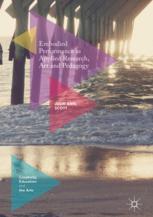

Most ebook files are in PDF format, so you can easily read them using various software such as Foxit Reader or directly on the Google Chrome browser.
Some ebook files are released by publishers in other formats such as .awz, .mobi, .epub, .fb2, etc. You may need to install specific software to read these formats on mobile/PC, such as Calibre.
Please read the tutorial at this link: https://ebookbell.com/faq
We offer FREE conversion to the popular formats you request; however, this may take some time. Therefore, right after payment, please email us, and we will try to provide the service as quickly as possible.
For some exceptional file formats or broken links (if any), please refrain from opening any disputes. Instead, email us first, and we will try to assist within a maximum of 6 hours.
EbookBell Team

5.0
60 reviewsThis book follows a physically disabled researcher's journey from stigmatized embodiment on her way to creating accessible storytelling performances. These unique performances function not only as traditional, peer-reviewed forms of critical qualitative research, but also as ‘narrative teaching productions’ that guide students and their audiences in the pursuit of social justice and equality. The book begins by developing the author's personal standpoint, and provides an evocative discussion of the multiple perceptions and identities experienced by those with disabled bodies. It negotiates how performance research can be created and conducted within the confines of course learning objectives, moves through complications encountered in research design and data collection, and explores a range of insightful responses from community members, social activists, and performance critics, as well as more traditional academic audiences. Critical autoethnographic personal narratives, performance scripts, and poetry are used to illuminate struggles over legitimate methodological practice and storytelling performance pedagogy. Each chapter confronts the fear of mortality that presses us to stigmatize those who remind us of our inescapably vulnerable embodiments and offers hope for an inclusive, adaptable culture. The book will be compelling reading for scholars in Performance Studies, Disability Studies, Cultural Studies, Narrative Methodology, Ethnography, Higher Education, Autoethnography, Creative Nonfiction and everyone interested embodiment and/or storytelling for social change.
Please visit www.uncwstorytelling.org/chapter-summaries-1 to access supplementary material for the book.